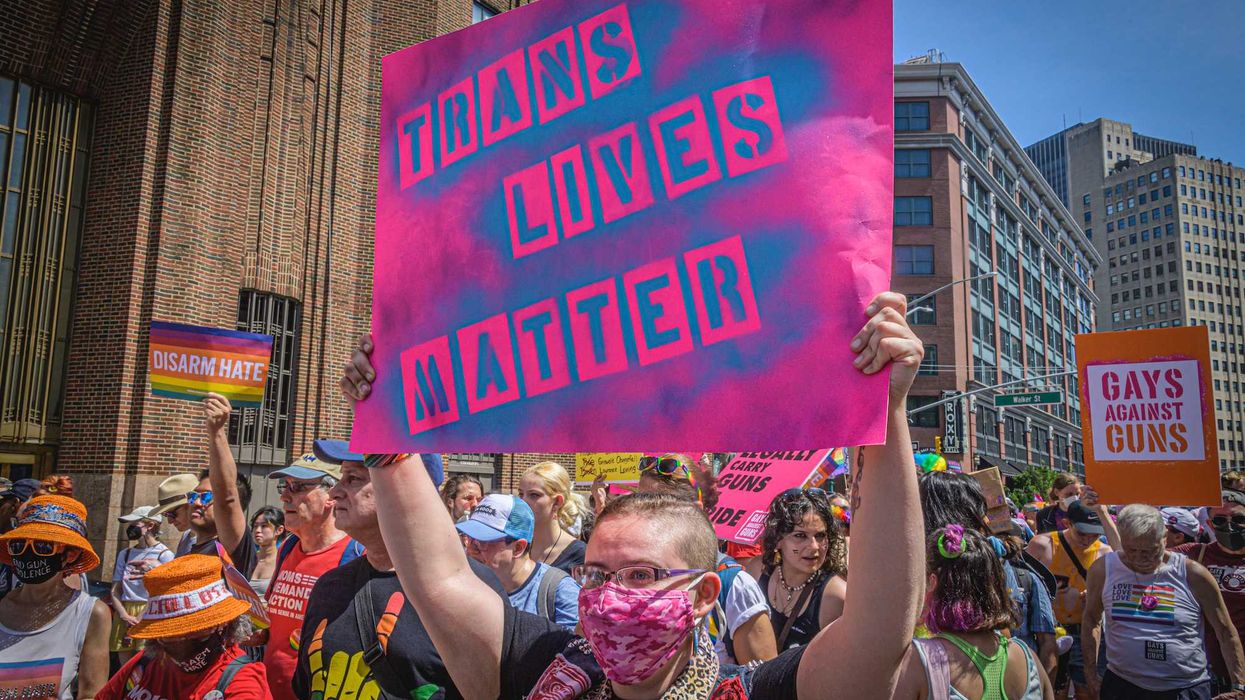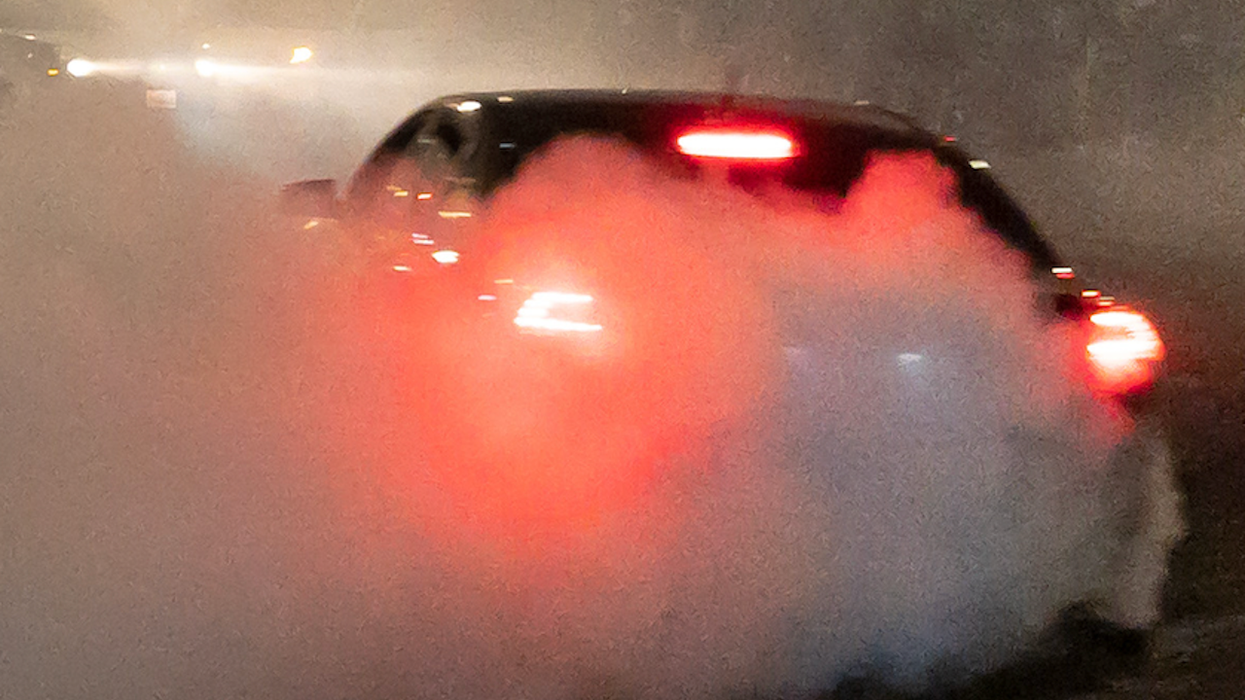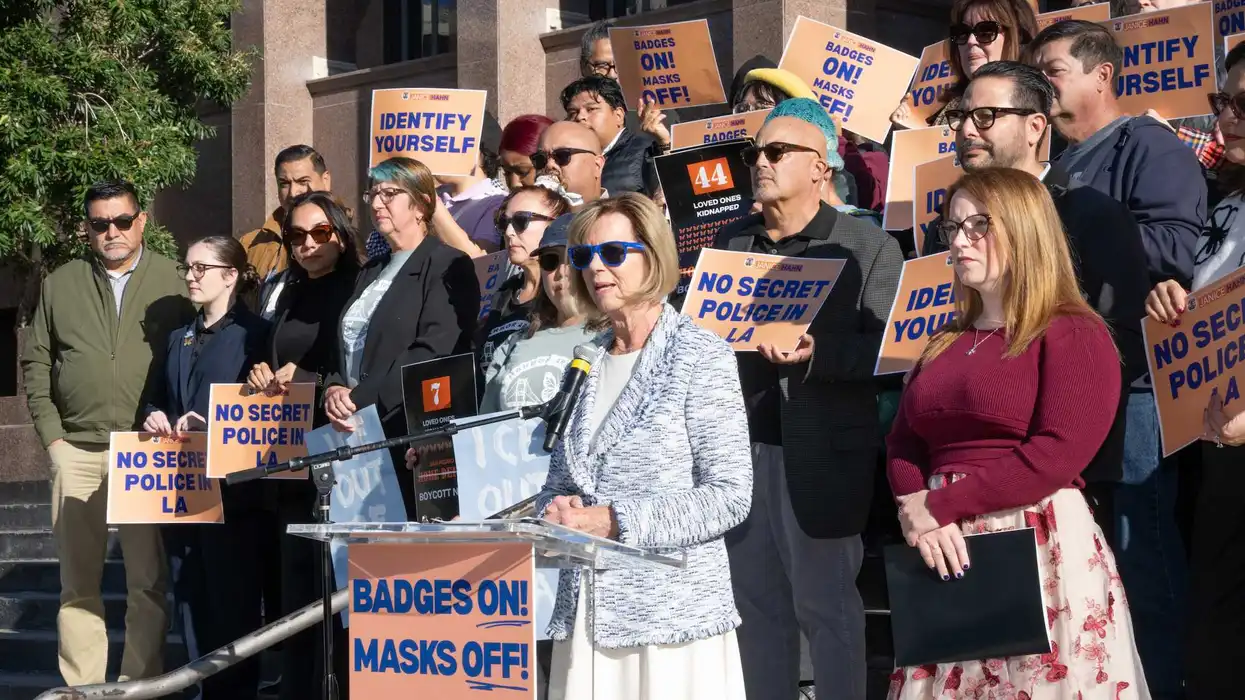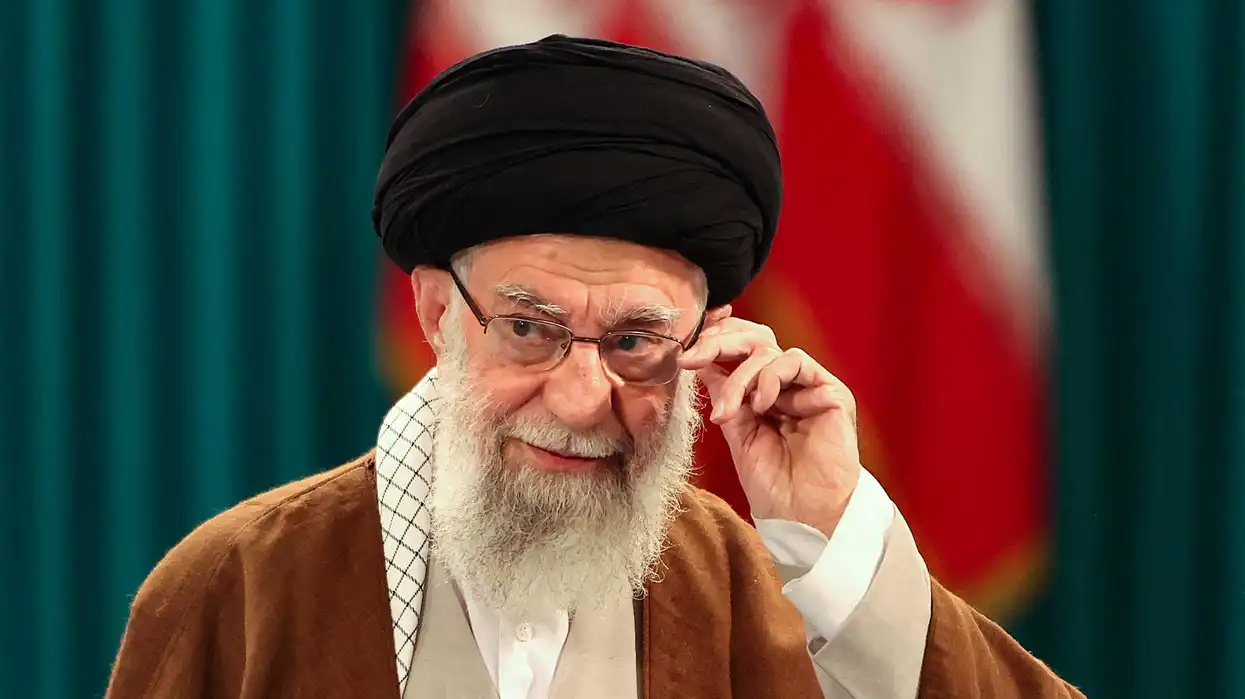PYONGYANG, North Korea (AP) -- North Korean leader Kim Jong Un on Friday declared his frontline troops in a "quasi-state of war" and ordered them to prepare for battle a day after the most serious confrontation between the rivals in years.
South Korea's military on Thursday fired dozens of artillery rounds across the border in response to what Seoul said were North Korean artillery strikes meant to back up a threat to attack loudspeakers broadcasting anti-Pyongyang propaganda.
The North's declaration Friday is similar to its other warlike rhetoric in recent years, including repeated threats to reduce Seoul to a "sea of fire," and the huge numbers of soldiers and military equipment already stationed along the border mean the area is always essentially in a "quasi-state of war." Still, the North's apparent willingness to test Seoul with military strikes and its recent warning of further action raise worries because South Korea has vowed to hit back with overwhelming strength should North Korea attack again.
 In this July 27, 2013, file photo, North Korean leader Kim Jong Un waves to spectators and participants of a mass military parade celebrating the 60th anniversary of the Korean War armistice in Pyongyang, North Korea. To say that Kim Jong Un is the leader of his country is a gross understatement. In North Korea, he is regarded as the epitome of his country. (AP Photo/Wong Maye-E, File)
In this July 27, 2013, file photo, North Korean leader Kim Jong Un waves to spectators and participants of a mass military parade celebrating the 60th anniversary of the Korean War armistice in Pyongyang, North Korea. To say that Kim Jong Un is the leader of his country is a gross understatement. In North Korea, he is regarded as the epitome of his country. (AP Photo/Wong Maye-E, File)
Pyongyang says it did not fire anything at the South, a claim Seoul dismissed as nonsense.
Kim Jong Un ordered his troops to "enter a wartime state" and be fully ready for any military operations starting Friday evening, according to a report in Pyongyang's official Korean Central News Agency. The North has also given Seoul a deadline of Saturday evening to remove border loudspeakers that, after a lull of 11 years, have started broadcasting anti-Pyongyang propaganda. Failure, Pyongyang says, will result in further military action. Seoul has vowed to continue the broadcasts.
The North's media report said that "military commanders were urgently dispatched for operations to attack South Korean psychological warfare facilities if the South doesn't stop operating them."
South Korea's Yonhap news agency, citing an unidentified government source, reported Friday that South Korean and U.S. surveillance assets detected the movement of vehicles carrying short-range Scud and medium-range Rodong missiles in a possible preparation for launches. South Korea's Defense Ministry said it could not confirm the report.
North Korea said the South Korean shells fired Thursday landed near four military posts but caused no injuries. No one was reported injured in the South, either, though hundreds were evacuated from frontline towns.
The loudspeaker broadcasts began after South Korea accused the North of planting land mines that maimed two South Korean soldiers earlier this month. North Korea denies this, too.
 People watch a television broadcast reporting the North Korean missile launch at the Seoul Railway Station on March 26, 2014 in Seoul, South Korea. North Korea test-launched two Nodong medium-range ballistic missiles into the sea off Korean peninsula's east coast on Wednesday morning, according to South Korea's defence ministry. (Photo by Chung Sung-Jun/Getty Images)
People watch a television broadcast reporting the North Korean missile launch at the Seoul Railway Station on March 26, 2014 in Seoul, South Korea. North Korea test-launched two Nodong medium-range ballistic missiles into the sea off Korean peninsula's east coast on Wednesday morning, according to South Korea's defence ministry. (Photo by Chung Sung-Jun/Getty Images)
Authoritarian North Korea, which has also restarted its own propaganda broadcasts, is extremely sensitive to any criticism of its government, run by leader Kim Jong Un, whose family has ruled since the North was founded in 1948. The loudspeaker broadcasts are taken seriously in Pyongyang because the government does not want its soldiers and residents to hear outsiders criticize human rights abuses and economic mismanagement that condemns many to abject poverty, South Korean analysts say.
North Korea on Thursday afternoon first fired a single round believed to be from an anti-aircraft gun, which landed near a South Korean border town, Seoul said. About 20 minutes later, three North Korean artillery shells fell on the southern side of the Demilitarized Zone dividing the two Koreas. South Korea responded with dozens of 155-milimeter artillery rounds, according to South Korean defense officials.
South Korea's military warned Friday that North Korea must refrain from engaging in "rash acts" or face strong punishment, according to South Korea's Defense Ministry.
South Korea raised its military readiness to its highest level. Joint Chiefs of Staff spokesman Jeon Ha-kyu told a televised news conference that South Korea is ready to repel any additional provocation.
Escalation is a risk in any military exchange between the Koreas because after two attacks blamed on Pyongyang killed 50 South Koreans in 2010, South Korea's military warned that any future North Korean attack could trigger strikes by South Korea that are three times as large.
Many in Seoul are accustomed to ignoring or discounting North Korea's repeated threats, but the latest have caused worry because of Pyongyang's warning of strikes if the South doesn't tear down its loudspeakers by Saturday evening. Observers say the North may need some save-facing measure to back down.
This is what happened in December 2010, when North Korea backed off an earlier warning of catastrophic retaliation after South Korea defiantly went ahead with live-fire drills near the country's disputed western sea boundary. A month earlier, when South Korea staged similar drills, the North reacted with an artillery bombardment that killed four people on a South Korean border island. North Korea said it didn't respond to the second drill because South Korea conducted it in a less provocative way, though the South said both drills were the same.
The rivals are currently also at odds over annual U.S.-South Korean military drills that North Korea calls an invasion rehearsal. Seoul and Washington say the drills are defensive in nature.
On Friday, residents evacuated in the South Korean town near where the shell fell, Yeoncheon, returned home, officials said. Yonhap reported that a total of about 2,000 residents along the border were evacuated Thursday.
Pyongyang was mostly business as usual Friday morning, although propaganda vans with loudspeakers broadcast the state media line that the country was in a "quasi-state of war" to people in the streets.
North Korean officials held a pair of rare briefings Friday to try to win support for their country's ultimatum that South Korea stop anti-Pyongyang propaganda broadcasts by Saturday.
Kim Yong Chol, director of the general reconnaissance bureau of the North Korean army, in what was described as an "emergency situation briefing" for diplomats and military attaches in Pyongyang, said all front-line units are on full war readiness. He gave no details on what kind of military retaliation North Korea would consider appropriate "punishment" for the South.
In Beijing, at the North Korean Embassy, Ambassador Ji Jae Ryong told reporters that South Korea's psychological warfare had "gone beyond the limits of tolerance."
South Korea has said the two soldiers wounded in the mine explosions were on a routine patrol in the southern part of the DMZ that separates the two Koreas. One soldier lost both legs and the other one leg.
The Koreas' mine-strewn DMZ is a legacy of the 1950-53 Korean War, which ended with an armistice, not a peace treaty, leaving the Korean Peninsula still technically in a state of war. About 28,500 U.S. soldiers are deployed in South Korea to deter potential aggression from North Korea.

 In this July 27, 2013, file photo, North Korean leader Kim Jong Un waves to spectators and participants of a mass military parade celebrating the 60th anniversary of the Korean War armistice in Pyongyang, North Korea. To say that Kim Jong Un is the leader of his country is a gross understatement. In North Korea, he is regarded as the epitome of his country. (AP Photo/Wong Maye-E, File)
In this July 27, 2013, file photo, North Korean leader Kim Jong Un waves to spectators and participants of a mass military parade celebrating the 60th anniversary of the Korean War armistice in Pyongyang, North Korea. To say that Kim Jong Un is the leader of his country is a gross understatement. In North Korea, he is regarded as the epitome of his country. (AP Photo/Wong Maye-E, File)
 People watch a television broadcast reporting the North Korean missile launch at the Seoul Railway Station on March 26, 2014 in Seoul, South Korea. North Korea test-launched two Nodong medium-range ballistic missiles into the sea off Korean peninsula's east coast on Wednesday morning, according to South Korea's defence ministry. (Photo by Chung Sung-Jun/Getty Images)
People watch a television broadcast reporting the North Korean missile launch at the Seoul Railway Station on March 26, 2014 in Seoul, South Korea. North Korea test-launched two Nodong medium-range ballistic missiles into the sea off Korean peninsula's east coast on Wednesday morning, according to South Korea's defence ministry. (Photo by Chung Sung-Jun/Getty Images)






